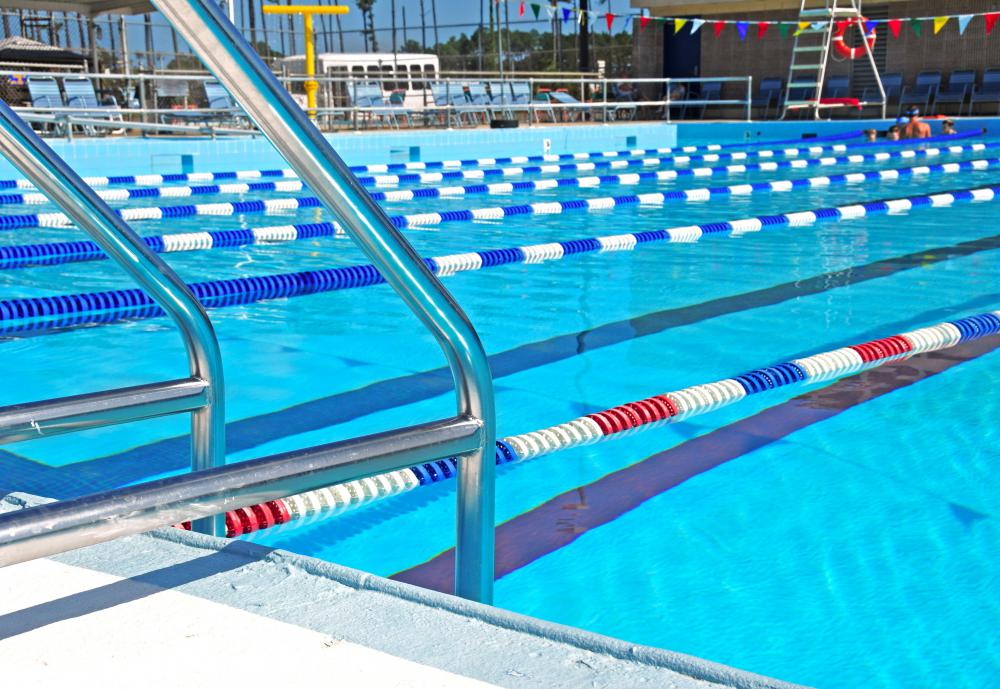At WiseGEEK, we're committed to delivering accurate, trustworthy information. Our expert-authored content is rigorously fact-checked and sourced from credible authorities. Discover how we uphold the highest standards in providing you with reliable knowledge.
What are Pool Pavers?
Pool pavers are specialized bricks designed to provide a safe, attractive and economical alternative to the traditional concrete pavement used around swimming pools. These pavers feature a non-slip surface and can be easily installed in a compacted sand base. The durable materials used are usually resistant to both chlorine and salt water. Pool pavers tend to be constructed of brick, concrete, or stone and come in a wide variety of shapes and colors.
Unlike typical paving materials, pool pavers are designed to provide a slip-resistant surface to prevent accidents from occurring on the wet pavement. The rough surface of these pavers also prevents them from becoming excessively hot when exposed to direct sunlight. These specialized pavers are frequently installed without the use of mortar and can usually be laid without enlisting the services of a professional paving contractor. Early versions of these sand-based pavers were often subject to erosion problems, but a special sealer has now been developed to prevent sand joints from washing into the pool.

Most pool pavers are constructed of materials that are resistant to chlorinated and salt water. A pool paver can be made even more resistant to salt water through the application of additional sealers. These sealers also make the pavers resistant to color fading caused by constant exposure to direct sunlight. Specialized coatings are also available to make ordinary pavers suitable for poolside use. Pool pavers can often be individually replaced if they become cracked or damaged.

Pool pavers are typically made of strong, long-lasting materials such as stone, brick, or concrete. Stone pavers are usually cut from limestone, sandstone, granite, or slate and often utilized to help the pavement blend into the surrounding landscape. Brick pavers are composed of clay and provide a natural, earth toned appearance to the poolside area. Pavers constructed of concrete can be purchased in many different shades and are typically used to produce a colorful design around the pool.
Although pool pavers are primarily designed for safety and durability, they are also manufactured in a wide variety of shapes, sizes, and colors. Stone pavers are generally cut into round, square, or rectangular shapes. Brick pavers are manufactured in oblong, diamond, and oval shapes as well as more traditional contours. Concrete pavers are sometimes available in shapes such as octagons, triangles, pentagons, and zigzags. Plain concrete pavers may be individually tinted to produce customized patterns and elaborate designs.
AS FEATURED ON:
AS FEATURED ON:












Discuss this Article
Post your comments